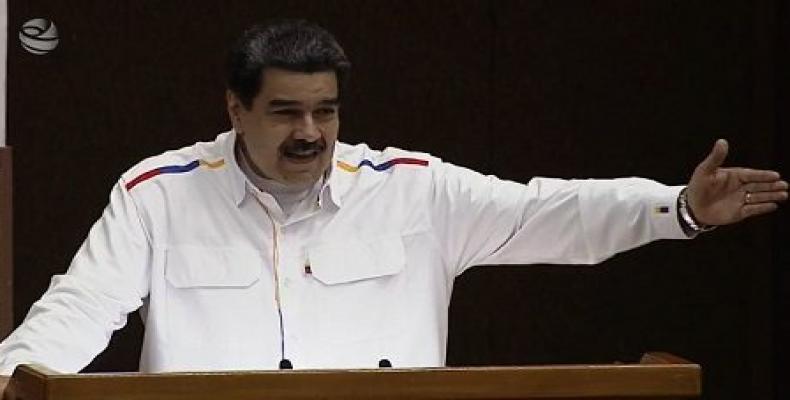Havana, November 3 (RHC)-- The president of Venezuela, Nicolás Maduro, said that the peoples of Latin America and the Caribbean are rising up against savage capitalism.
Speaking Sunday in Havana at the closing session of the Anti-Imperialist Encounter of Solidarity, for Democracy and against Neoliberalism, the Venezuelan leader said that it was Cuba that summoned the world to debate, study and unmask the policies of financial domination of the International Monetary Fund.
“Cuba occupies a primordial role for the unity of the peoples,” he said.
Reacting to the expulsion from El Salvador of Venezuelan diplomatic personnel --an action by Salvadoran president Nayib Bukele which he described as complacent to the United States-- the Venezuelan head of state said that decision to reciprocate does not break relations between the peoples of the two countries.
"Rest assured that imperialism will not separate the peoples of El Salvador and Venezuela," he stressed.
Although the neoliberal scenario seems to take the reins in Latin American countries, Maduro reaffirmed that it is exciting to watch the Chilean people rise against a constitution forged by the genocidal Pinochet, "a social revolution is emerging, in Chile the martyrs have resurrected," he added.
"There is a general insurgency of the people against the International Monetary Fund's model of exclusion, privatization, impoverishment, the individualism of savage capitalism, and neoliberalism," President Maduro said.
He also recalled Venezuela's profoundly democratic process," our Constitution was built together with the people, it is the basis of our Revolution," he added.
"In Venezuela, an alternative project to neoliberalism will never be reversed. The Bolivarian Revolution emerged as an early response to demonstrate that it is possible to build a society that guarantees its people social rights," noted the Venezuelan president.
Maduro concluded his remarks in Havana, stressing that there is a new anti-neoliberal wave in the making that will lead to new alternatives in Latin America in the future.


